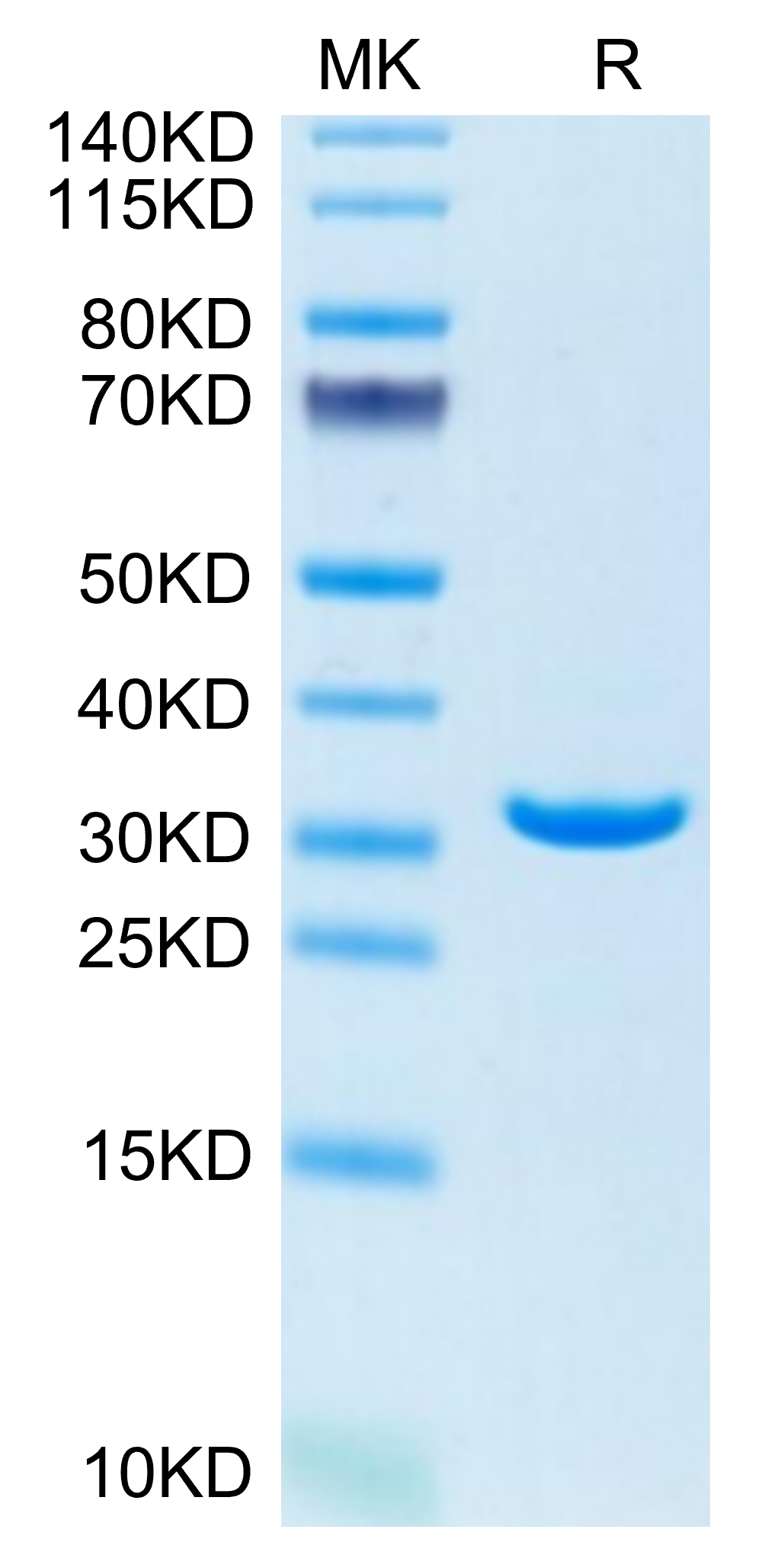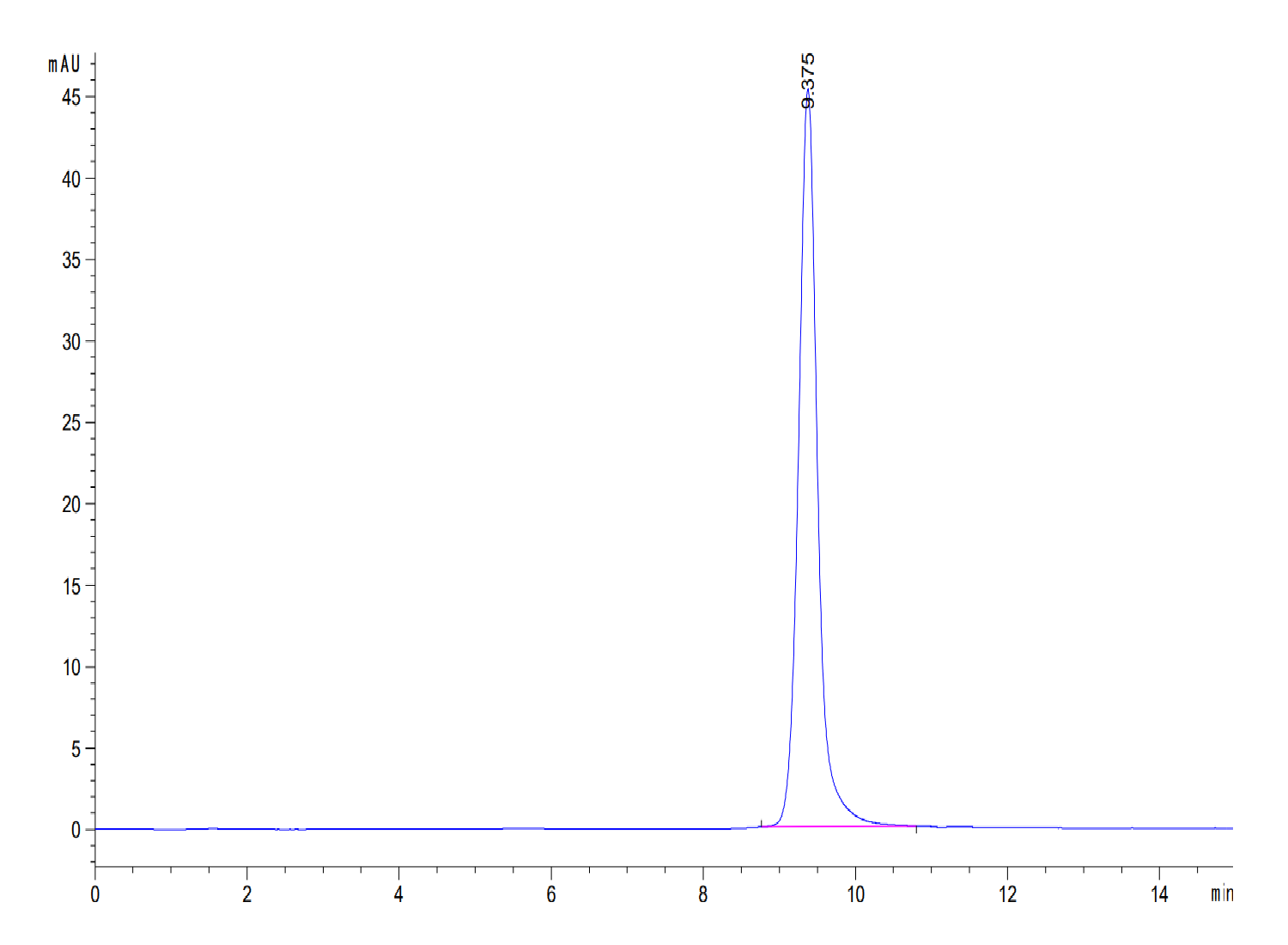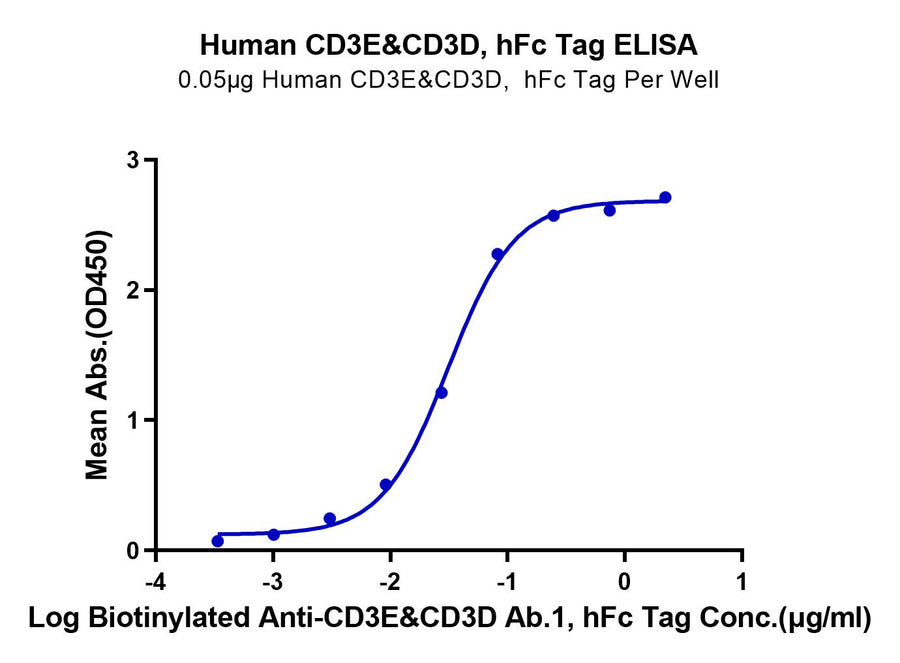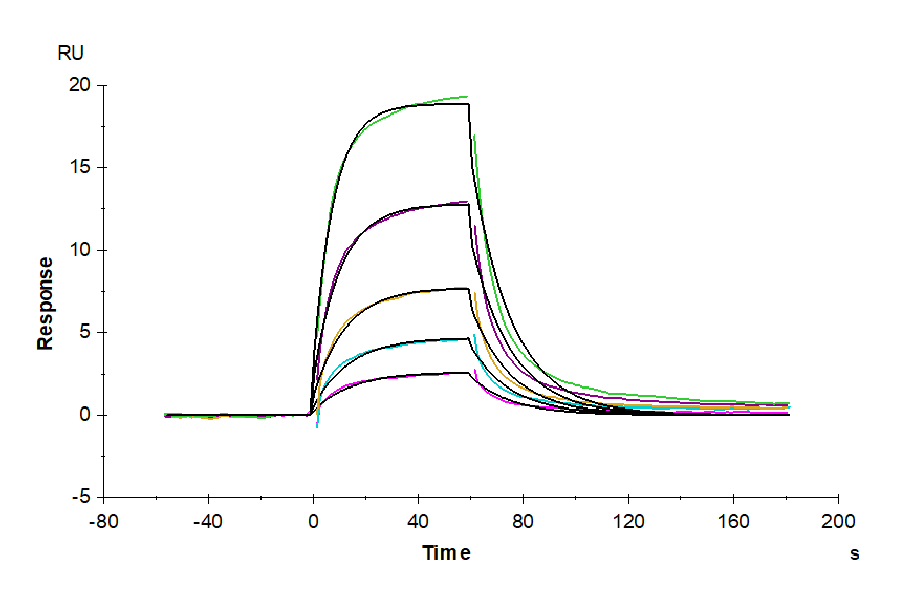Product Description |
Recombinant Human Annexin V/ANXA5 Protein is expressed from E.coli without tag.It contains Ala2-Asp320. |
Product Background |
Propidium iodide (PI) is widely used in conjunction with Annexin V to determine if cells are viable, apoptotic, or necrotic through differences in plasma membrane integrity and permeability. The Annexin V/PI protocol is a commonly used approach for studying apoptotic cells. PI is used more often than other nuclear stains because it is economical, stable and a good indicator of cell viability, based on its capacity to exclude dye in living cells. |
Product Category |
Recombinant Protein / Antibody discovery |
Protein |
Annexin V/ANXA5 |
Synonyms |
Annexin A5; Anchorin CII; Annexin V; Annexin-5; Calphobindin I; CBP-I; Endonexin II; PP4; PAP-I; VAC-alpha; ANX5; ENX2; ANXA5; HEL-S-7; RPRGL3 |
Accession |
|
Species |
Human |
Biotinylated |
no |
Amino Acid Range |
Ala2-Asp320 |
Molecular Weight |
The protein has a predicted MW of 35.9 kDa same as Bis-Tris PAGE result. |
Product Tag |
No Tag |
Expression System |
E.coli |
Purity |
> 95% as determined by Bis-Tris PAGE;> 95% as determined by HPLC |
Endotoxin |
Less than 1EU per ug by the LAL method. |
Form |
Lyophilized |
Shipping |
Shipped at ambient temperature. |
Formulation |
Lyophilized from 0.22 um filtered solution in 50mM Tris, 240mM NaCl (pH 8.5). Normally 8% trehalose is added as protectant before lyophilization. |
Reconstitution |
Centrifuge the tube before opening. Reconstituting to a concentration more than 100 ug/ml is recommended. Dissolve the lyophilized protein in distilled water. |
Stability And Storage |
-20 to -80°C for 12 months as supplied from date of receipt.; -80°C for 3 months after reconstitution.; Recommend to aliquot the protein into smaller quantities for optimal storage. Please minimize freeze-thaw cycles. |
Related Products
Have more questions?
Check out our Frequently Asked Questions page for more details about product specifications, ordering, and shipments.
Contact Us
More from Antibody Drug Discovery Proteins
Recently viewed

























